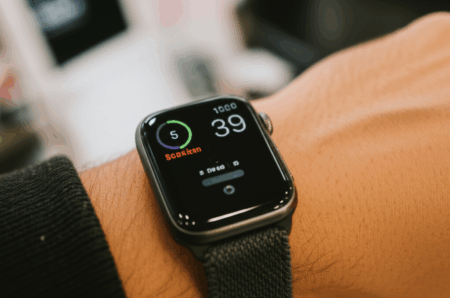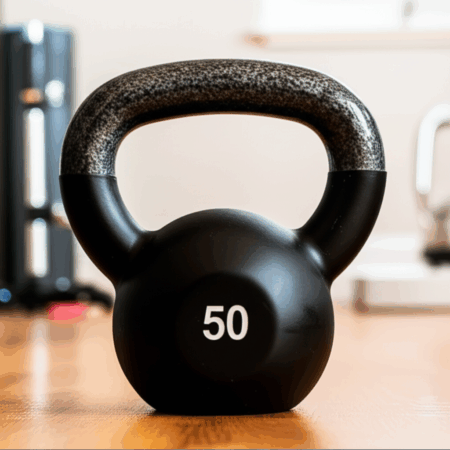The fitness world is constantly evolving, with new trends and technologies emerging all the time. One of the most significant developments in recent years has been the rise of AI-powered fitness apps and virtual coaches. These tools promise personalized workout plans, real-time feedback, and the convenience of training anytime, anywhere. But can these AI trainers truly replace the expertise and human connection of a real-life fitness coach?
The Rise of the Machines: AI in the Fitness World
Artificial intelligence (AI) has infiltrated nearly every industry, and fitness is no exception. AI-driven apps and devices offer a range of features designed to streamline your workout and provide customized guidance. Here’s how AI is making its mark:
- Personalized Workout Plans: AI can analyze your data, such as age, fitness level, and goals, to generate customized training programs. These apps provide adaptive workouts that evolve based on your feedback and performance .
- Virtual Coaching & Chatbots: AI-powered chatbots and virtual trainers provide instant feedback, answering common fitness-related queries and keeping you accountable .
- Real-Time Feedback: AI can provide real-time feedback and adjust workouts instantly based on your performance in each session, enhancing both efficiency and safety .
- Progress Tracking: AI systems facilitate detailed tracking of your progress, analyzing vast amounts of data to provide insights that can fine-tune your fitness regime even further .
- 24/7 Support: Virtual AI trainers can provide round-the-clock support, answering questions and keeping you accountable between sessions .
- Smart Equipment: AI-powered equipment can count your reps, ensure your form is correct, and push you to your limit .
The Enduring Appeal of Human Coaches
Despite the allure of AI, human fitness coaches offer unique benefits that technology can’t replicate. These include:
- Personalized Attention: Human trainers offer personalized attention that cannot be replicated by an app or a device, creating a more social and supportive environment .
- Emotional Intelligence: AI lacks the emotional intelligence and human touch that personal trainers provide. They can’t empathize, sympathize, or take emotional cues into consideration .
- Accountability and Motivation: A personal trainer will hold you accountable to actually following your plan in order to reach your goals and keep you motivated to keep going when you want to quit .
- Adaptability: A personal trainer can adapt on the fly, responding to how you’re feeling on a given day, something AI struggles to do .
- Form Correction: Human trainers can spot and correct form errors or provide alternative exercises if certain movements are too challenging for the user .
- Nuanced Advice: Human personal trainers can provide in-the-moment guidance and help tailor a fitness routine that better helps you reach your goals while avoiding exercises that may be less beneficial .
Head-to-Head: AI Trainer vs. Human Coach
To determine whether an AI trainer can truly replace a human coach, let’s examine the strengths and weaknesses of each:
AI Trainer: Pros
- Affordability: AI-powered fitness apps are generally more affordable than hiring a personal trainer .
- Accessibility and Convenience: AI trainers are available 24/7, allowing you to workout anytime, anywhere .
- Data-Driven Insights: AI excels at collecting and analyzing data, providing valuable insights into your progress and areas for improvement .
- Personalization: AI can create customized workout plans based on your individual data and goals .
- Efficiency: AI-powered tools can track and analyze your workouts efficiently, saving you time and effort .
- Non-Judgmental Support: AI provides guidance, support, and motivation without any bias or judgement .
AI Trainer: Cons
- Lack of Human Connection: AI can’t replicate the emotional connection and empathy that a human trainer provides .
- Inability to Adapt to Unexpected Changes: AI-powered fitness programs may struggle to adapt to unexpected changes in your fitness journey or emotional factors .
- Generic Recommendations: AI may not account for unique conditions such as injuries, medical conditions, or personal preferences as effectively as a human trainer .
- Potential for Misinformation: Not all AI-generated fitness advice is backed by science .
- Data Privacy Concerns: The increasing reliance on AI means handling sensitive health and fitness data .
- Inaccurate Form Assessment: AI may not accurately assess your physical form, posture, or technique, potentially leading to injuries .
Human Coach: Pros
- Personalized Attention and Support: Human trainers provide individualized attention, motivation, and emotional support .
- Expertise and Experience: Personal trainers have a wealth of knowledge on human anatomy, training methods, and nutrition .
- Proper Form Correction: A trainer can correct your form and technique, reducing the risk of injury .
- Adaptability and Flexibility: Trainers can adapt to your changing needs, preferences, and physical condition .
- Accountability and Motivation: A trainer keeps you accountable and motivated to stick to your fitness routine .
- Goal Setting: A personal trainer can help you set realistic and attainable goals based on your personal experiences and abilities .
Human Coach: Cons
- Cost: Hiring a personal trainer can be expensive .
- Scheduling Limitations: You need to schedule sessions with a trainer, which may not always be convenient .
- Potential for Personality Clashes: You may not always click with a trainer, which can affect your motivation and progress.
Real-World Experiences
Many people have experimented with using AI as their personal trainer, with varying results. One Time Magazine article detailed a runner’s experience using ChatGPT to create a marathon training plan. The results were underwhelming, with the chatbot providing generic and sometimes incomprehensible advice .
In contrast, a personal trainer writing for Tom’s Guide tested ChatGPT to build a 15-minute hip mobility routine and was pleasantly surprised by the results. While the routine wasn’t groundbreaking, it was a decent starting point .
A Men’s Health writer used ChatGPT as a personal trainer for a month and found that the workouts were generally effective but lacked personalization and contained some mistakes. The writer concluded that AI could be semi-helpful for getting into the gym but not super helpful for pushing yourself during a workout .
The Hybrid Approach: The Best of Both Worlds
The future of fitness may not be an either/or scenario but rather a hybrid approach that combines the strengths of both AI and human trainers . In this model, AI could handle data analysis, progress tracking, and routine customization, while human trainers focus on providing emotional support, motivation, and lifestyle coaching .
“The future of fitness is not about AI replacing human coaches. It is about AI assisting human coaches,” writes CrossFit Kreis 9 . “AI is effective for tracking progress, providing data-driven adjustments, and helping coaches program more efficiently. However, true fitness success comes down to consistency, support, and mindset—elements that only a real personal trainer can provide.”
Making the Right Choice for You
Ultimately, the decision of whether to use an AI trainer or a human coach depends on your individual needs, goals, and preferences.
Consider an AI trainer if:
- You’re on a budget
- You prefer to workout independently
- You’re motivated by data and progress tracking
- You need a flexible training schedule
Consider a human coach if:
- You need personalized attention and support
- You struggle with motivation and accountability
- You have specific health conditions or injuries
- You value the human connection and emotional support
The Final Verdict
While AI trainers offer numerous benefits, they can’t fully replace the expertise, empathy, and personalized attention of a human fitness coach. The ideal scenario may be a hybrid approach that leverages the strengths of both, with AI providing data-driven insights and human trainers offering motivation and guidance.
Whether you choose an AI trainer, a human coach, or a combination of both, the most important thing is to find a fitness solution that works for you and helps you achieve your health and wellness goals.







